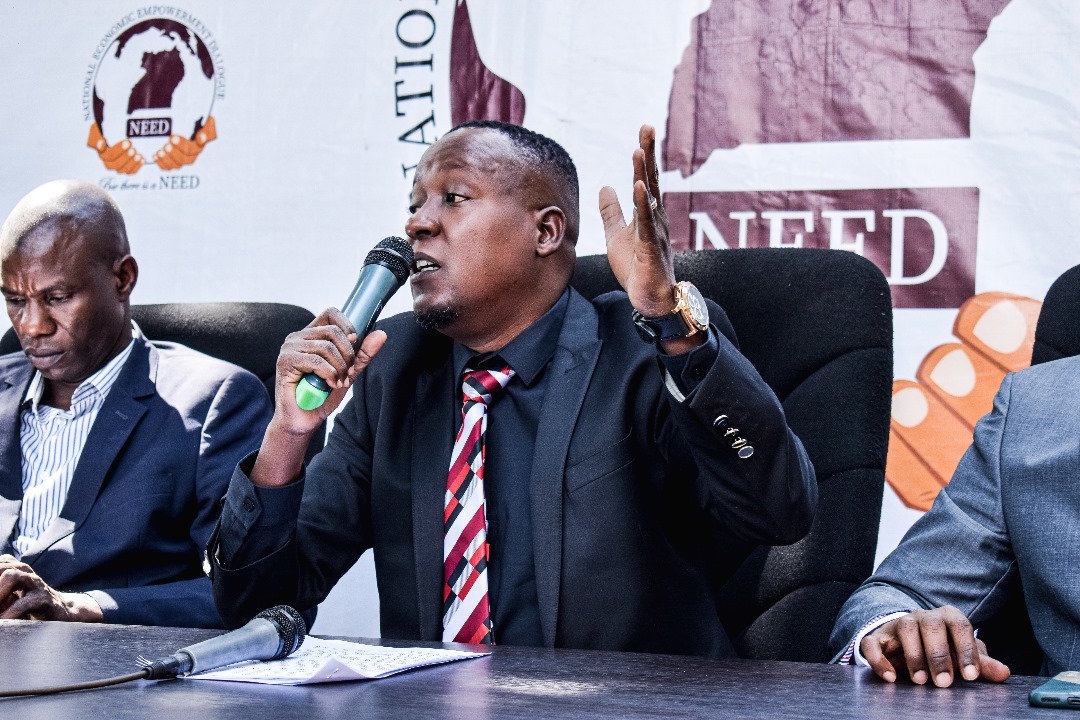As Uganda approaches the 2026 general elections, the country’s opposition landscape is in flux. Political coalitions and front-line alliances constantly form and fracture, as parties seek to challenge the ruling National Resistance Movement (NRM) and President Yoweri Museveni’s decades-long hold on power. In this context, Joseph Kabuleta, leader of the National Economic Empowerment Dialogue (NEED) party, has emerged as a resolute and vocal critic of what he calls “opportunistic” political coalitions—alliances that, in his view, lack ideology, shared vision, or principled commitment to Uganda’s transformation.

Kabuleta’s Political Trajectory
Joseph Kizza Kabuleta is no stranger to Ugandan politics or the power of coalitions. Having contested for the presidency in 2021 and positioned himself as a vocal advocate for economic empowerment, he has also been part of earlier alliance efforts, such as the now-defunct Holy Alliance. However, his experiences have led him to reevaluate coalition-building, emphasizing the dangers of expedient, short-term arrangements over genuine, value-based partnerships.
His Critique of Coalitions
Kabuleta’s stance is nuanced. He does not oppose coalitions outright but draws a clear distinction between those anchored in shared, “non-negotiable” values and those motivated by personal gain or profile elevation. At a press briefing and in several public statements, Kabuleta was explicit:
“My experience with politics, especially in coalitions, has been a bitter one. Many people join just to build their own profiles. Some used us to elevate their status and then secured funding elsewhere”.
Opportunistic Motives: Kabuleta labels many contemporary alliances in Uganda as survival tactics or fundraising vehicles, rather than sincere platforms for political and economic reform.
Need for Shared Ideology: For Kabuleta, only coalitions deeply rooted in common vision and ideological clarity are worthwhile. “Coalitions only make sense if rooted in a shared vision. Without that, they are just stepping stones for political opportunists,” he insists.
Historical Frustrations: His involvement in the Holy Alliance, which rapidly lost meaning due to divergent interests among its parties, solidified his skepticism about coalition politics centered merely on defeating an incumbent rather than building a sustainable future.
Emphasis on Economic Empowerment
Kabuleta’s political identity centers on economic empowerment—a theme encapsulated in NEED’s slogan, “Money in the Pocket.” He contrasts his approach with traditional opposition tactics, promising real empowerment rather than handouts or symbolic gestures. “NEED is not interested in opportunistic arrangements based on short-term political gain,” he confirms, pointing to his history of self-financing and independence from status-driven alliances.
Uganda’s Opposition Landscape: A Fragmented Field
The opposition’s challenges are well-known: factionalism, internal strife, and ideological rifts have weakened once-dominant parties like the Forum for Democratic Change (FDC), Democratic Party (DP), and National Unity Platform (NUP). Kabuleta’s NEED party, smaller and devoid of deep historical baggage, positions itself as a fresh alternative. Actually, his relative outsider status allows him to act as a neutral and unifying figure among Uganda’s splintered opposition.
Despite frequent calls within opposition circles for a unified front, especially against the backdrop of Museveni’s entrenched regime, Kabuleta remains wary of unity for unity’s sake:
“We are not against coalitions, but they must be founded on genuine values and a clear direction for this country”.
This view acquires even greater significance as various alliances—such as the Democratic Alliance, United Forces of Change, and People’s Front for Transition—seek new formulas to confront the NRM.
Commitment to the 2026 Presidential Bid
Amidst ongoing coalition talks, Kabuleta has unequivocally confirmed his intention to contest the presidency in 2026, making clear that NEED will pursue its mission independently unless invited into alliances that share its values and vision. He rebuffs persistent claims that he is a state-sponsored candidate placed to divide the opposition, clarifying that his political choices are guided by principles, not expediency.
Conclusion
Joseph Kabuleta’s rejection of opportunistic coalitions is both a critique of Uganda’s turbulent opposition politics and a statement of personal and party values. By drawing a firm line on the importance of principle, vision, and the long-term interests of Ugandans—over short-term gains and political survival—Kabuleta offers a distinct approach in a crowded field. Whether this philosophy will succeed electorally remains to be seen, but it injects a much-needed dose of introspection and debate into Uganda’s journey toward a more robust and principled opposition.

